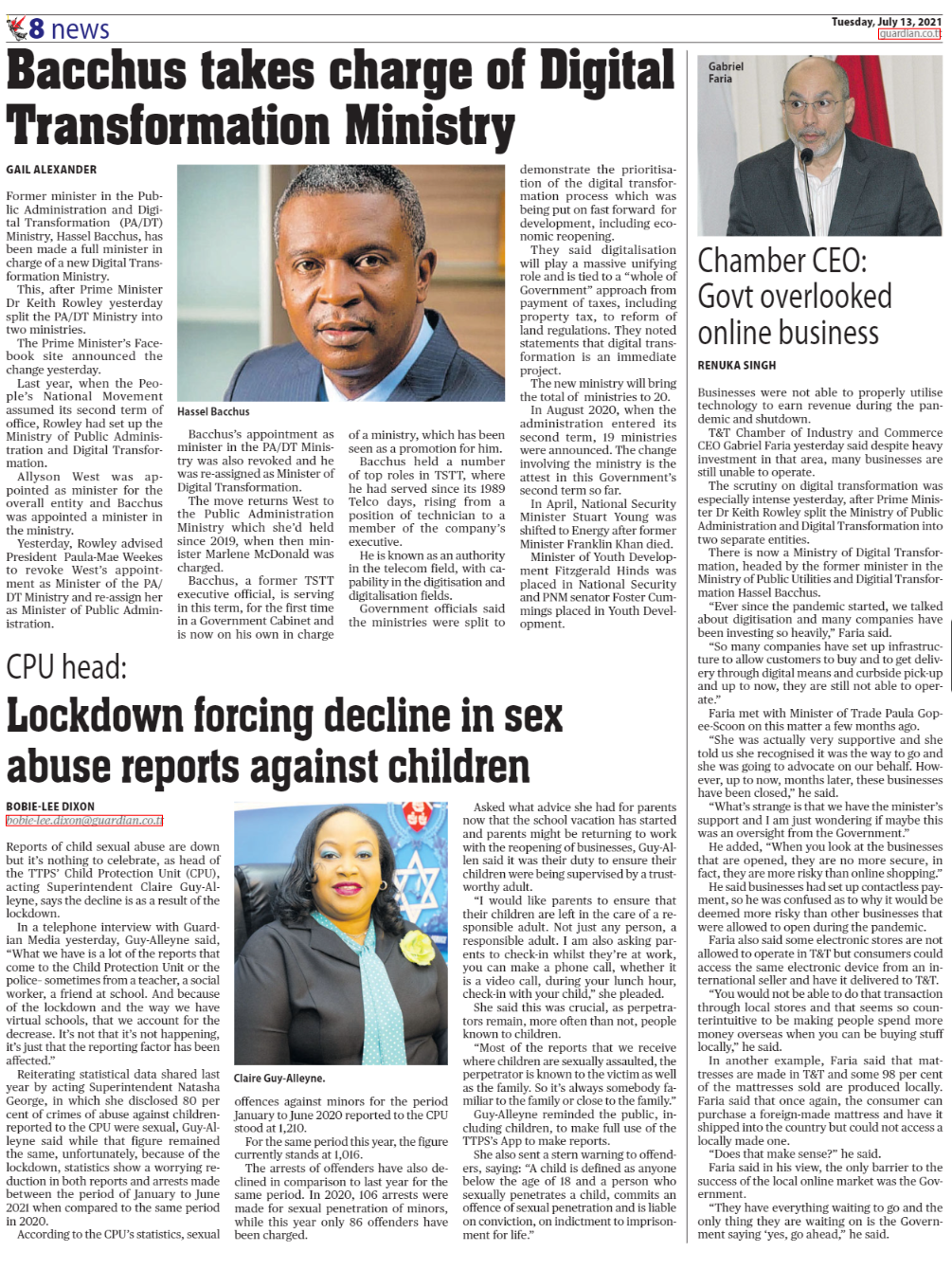Chamber CEO: Govt overlooked online business
RENUKA SINGH
Businesses were not able to properly utilise technology to earn revenue during the
pandemic and shutdown.
T&T Chamber of Industry and Commerce CEO Gabriel Faria yesterday said despite
heavy investment in that area, many businesses are still unable to operate.
The scrutiny on digital transformation was especially intense yesterday, after Prime
Minister Dr Keith Rowley split the Ministry of Public Administration and Digital
Transformation into two separate entities.
There is now a Ministry of Digital Transformation, headed by the former minister in
the Ministry of Public Utilities and Digitial Transformation Hassel Bacchus.
“Ever since the pandemic started, we talked about digitisation and many companies
have been investing so heavily,” Faria said.
“So many companies have set up infrastructure to allow customers to buy and to get
delivery through digital means and curbside pick-up and up to now, they are still not
able to operate.”
Faria met with Minister of Trade Paula Gopee-Scoon on this matter a few months ago.
“She was actually very supportive and she told us she recognised it was the way to go
Gabriel Faria
and she was going to advocate on our behalf. However, up to now, months later, these
businesses have been closed,” he said.
“What’s strange is that we have the minister’s support and I am just wondering if
maybe this was an oversight from the Government.”
He added, “When you look at the businesses that are opened, they are no more secure,
in fact, they are more risky than online shopping.”
He said businesses had set up contactless payment, so he was confused as to why it
would be deemed more risky than other businesses that were allowed to open during
the pandemic.
Faria also said some electronic stores are not allowed to operate in T&T but consumers
could access the same electronic device from an international seller and have it
delivered to T&T.
“You would not be able to do that transaction through local stores and that seems so
counterintuitive to be making people spend more money overseas when you can be
buying stuff locally,” he said.
In another example, Faria said that mattresses are made in T&T and some 98 per cent
of the mattresses sold are produced locally.
Faria said that once again, the consumer can purchase a foreign-made mattress and
have it shipped into the country but could not access a locally made one.
“Does that make sense?” he said.
Faria said in his view, the only barrier to the success of the local online market was the
Government.
“They have everything waiting to go and the only thing they are waiting on is the
Government saying ‘yes, go ahead,” he said.
Photo: Gabriel Faria

